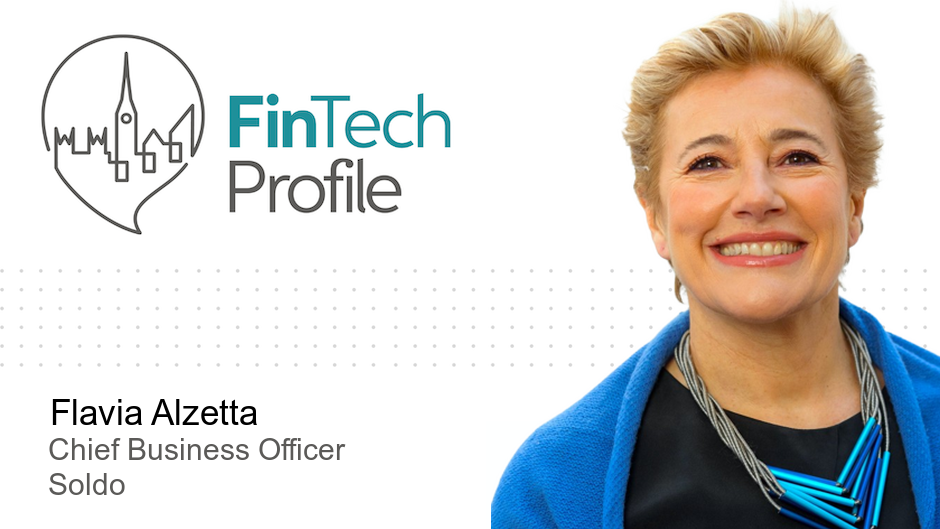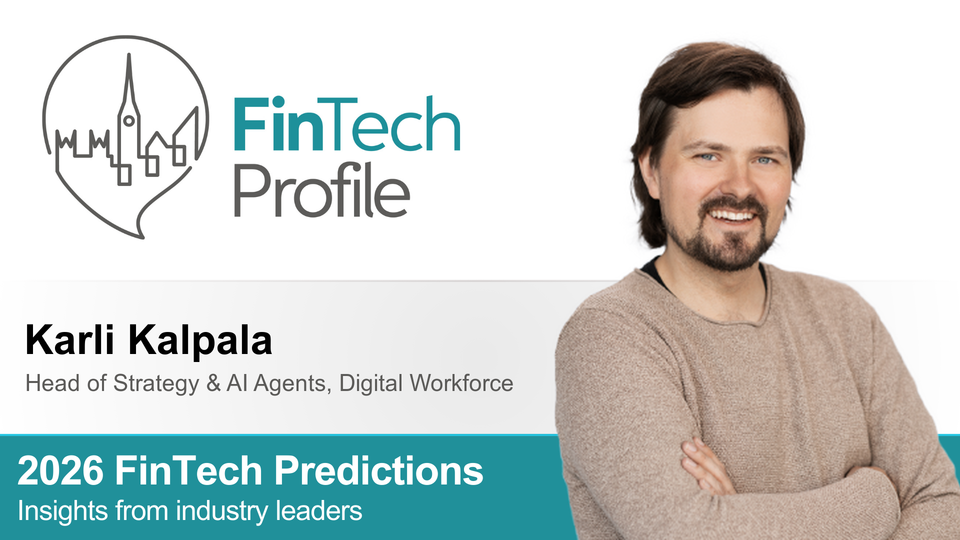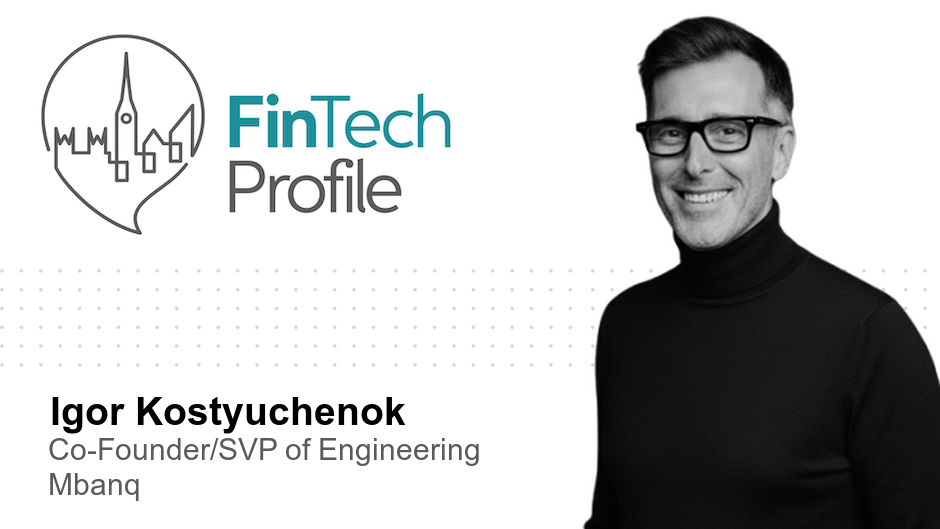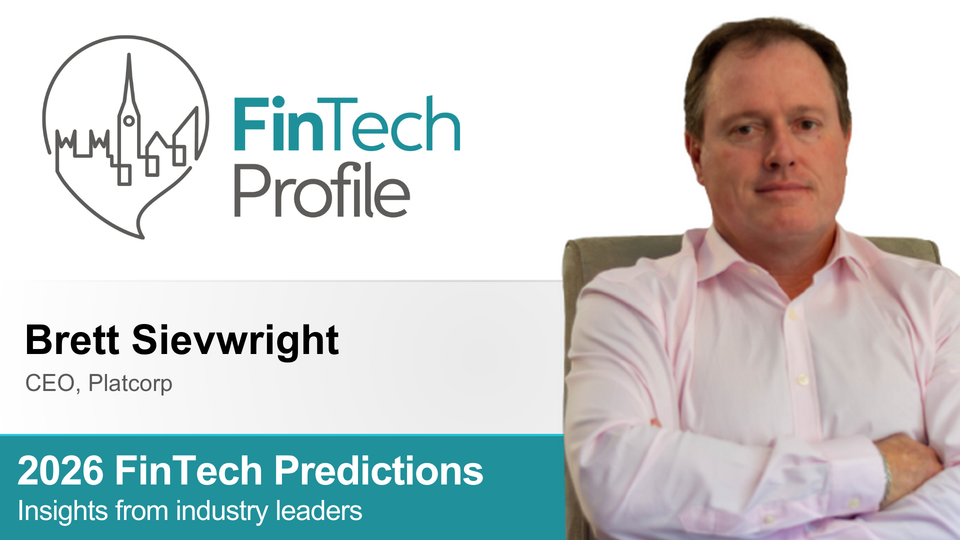Flavia Alzetta, Chief Business Officer of Soldo

Today we're meeting Flavia Alzetta, Chief Business Officer at Soldo. They specialise in the proactive spend management solution that frees progressive businesses to accomplish more.
Over to you Flavia - my questions are in bold:
Who are you and what's your background?
Hi, I'm Flavia Alzetta. I've spent over two decades in payments and financial services, with a focus on growth, innovation and building high-performing teams across global markets.
I studied business and economics in both Italy and the USA and later deepened my leadership expertise through executive education, including at the Institute of Directors. Early in my career, I held leadership roles at companies like Electrolux and American Express, which really shaped my approach to driving change, customer centricity and scaling businesses.
One of the most defining chapters of my journey actually came when I left American Express to pursue, what I jokingly call, my "PhD in leadership". That involved spending 9 months sailing across the Atlantic, Indian and Pacific oceans, which was an intense and unforgettable experience. Out at sea, the stakes are high and there's no room for error. If you don't perform, the consequences are immediate and very real. It really shaped how I think about leadership under pressure.
That experience taught me so much about people, such as how we respond to stress, how important calm, empathetic leadership is, and how clarity and structure can make all the difference. Those lessons have stayed with me in fintech, where change is constant and the pace is relentless. It's one thing to drive change, but quite another to understand its impact on people and help them navigate it in a healthy, sustainable way.
What is your job title and what are your general responsibilities?
I'm currently the Chief Business Officer Financial Services at Soldo. My role focuses on the Soldo regulated business - we are an e-money institution with licences in the UK and in Ireland. Our payments services are embedded in our technology product in a differentiating way for our customers, who have access to a seamless and highly digitalised spend to reconciliation experience. My mission is to ensure that we can offer the relevant payment services to our customers and do so in full compliance with regulations.
Can you give us an overview of your business?
Soldo is a spend management platform designed to help businesses gain more control and visibility over company-wide spending. We combine company cards with powerful software, so finance teams can manage budgets and track expenses in real time.
Whether it's travel costs, subscriptions, or day-to-day operational costs, Soldo provides companies with visibility and control, without slowing their teams down. Employees in turn get the freedom they need to spend responsibly, while finance teams stay in the driver's seat.
We work with thousands of businesses across Europe, from fast-growing startups to large enterprises, helping them streamline their financial processes and make smarter decisions using AI-driven insights. It's all about making spend management simpler, more transparent and fit for the way modern businesses operate.
Tell us how you are funded?
Soldo is funded through a mix of venture capital and revenue from our subscription-based services. Our key investors include Accel, Battery Ventures, Dawn Capital and Connect Ventures. In our most recent Series C funding round in 2021, we raised $180 million, which was led by Battery Ventures, with participation from existing investors and new backers including Temasek and Sunley House Capital.
What's the origin story? Why did you start the company? To solve what problems?
Soldo started with a simple idea: managing company spend shouldn't be so complicated. Our founder saw how much time and energy businesses were wasting on manual processes, especially as spending became more decentralised across entire businesses.
In the beginning, Soldo focused on simplifying that chaos with prepaid cards and expense tracking. But as our customers grew, so did their needs. That's really shaped our journey - from a simple tool to a full spend management platform that helps finance teams stay in control while making it easier for employees to do their jobs.
We've always believed that technology should work with you, not add more layers, so we've built a system that gives real-time visibility, integrates with accounting tools like Xero and makes it easier to spend on a day-to-day basis. It's not just about digitising a process; it's about making the entire experience more intuitive and transparent.
Today, Soldo supports over 25,000 businesses across 31 countries, but at our core, it's still about solving the very human problem of enabling teams work smarter with money.
Who are your target customers? What's your revenue model?
We work with companies of all shapes and sizes, from SMEs to large enterprises. What they all have in common is the need to manage spending more efficiently, especially as more teams are empowered to make purchasing decisions.
Our platform is modular, so customers can tailor it to their specific needs. And because Soldo integrates easily with existing finance systems, it fits into their workflow without adding extra complexity. The goal is to reduce time spent on admin and give finance teams the insights they need to make better, more informed decisions.
Some of our larger customers, like Biesse and GetYourGuide, rely on Soldo because it scales with them. They use our platform to set granular spending rules, keep an eye on budget control and make sure internal policies are being followed. That kind of control is essential when you're dealing with complex operations and global teams.
As for our revenue model, it's subscription based. Businesses pay for access to the platform and features based on the number of users and cards they need. It's flexible, so customers can start small and scale up as they grow or their needs evolve.
If you had a magic wand, what one thing would you change in the banking and/or FinTech sector?
If I had a magic wand, I'd make real integration and interoperability the norm across the banking and fintech ecosystems. Right now, too many finance teams are stuck stitching together disconnected systems - expenses in one place, budgets in another and reporting somewhere else. It's inefficient and error prone.
Modern businesses need tools that talk to each other, so they can move quickly without getting buried in admin. At the same time, they're under pressure to cut costs and improve the employee experience. Striking the balance between control and agility, transparency and ease, isn't easy when your tech stack doesn't align.
That's one of the big challenges I'd love to see the industry solve. We need to shift from fragmented systems to a more unified approach, where financial tools work together seamlessly to support smarter more sustainable growth.
What is your message for the larger players in the Financial Services marketplace?
My message to the larger players in fintech is this: stay agile and keep listening to your customers! Innovation in financial services isn't about new tech, it's about transforming customer experience and providing needed services in a digital and seamless way. The most successful organisations combine a clear vision with a strong ability to execute, and value customer centricity supported by a human-centred mindset.
Stay close to your customers, invest and develop your talent. Most importantly, don't underestimate the role of a value driven and purposeful leadership. In a fast-moving environment, those who adapt thoughtfully, focus on delivering real value to their customers and drive a performing culture will always be ahead. Think of it like sailing - great leadership is about staying focused on getting to the destination safely and with everyone on board.
Where do you get your Financial Services/FinTech industry news from?
I follow and read a variety of sources. I regularly read Finextra, Crunchbase, The Fintech Times and Sifted to stay on top of industry insights and trends. I also subscribe to newsletters from FinTech influencers like X, which provide useful perspectives from people working directly in the field. For updates on regulation and policy, I follow the Bank of England and the FCA. Altogether, this gives me a well-rounded view - from market developments and thought leadership to more formal guidance.
Can you list 3 people you rate from the FinTech and/or Financial Services sector that we should be following on LinkedIn, and why?
I follow different people and organisations for different reasons: for an overview of the weekly news, Linas Beliunas and Marcel van Oost's newsletters are always an interesting read, alongside scanning Finextra and The Fintech Times. I also like to follow CEOs such as Jamie Dimon (JP Morgan) and Satya Nadella (Microsoft) who I find really thought provoking.
What FinTech services (and/or apps) do you personally use?
I love to test new fintech propositions and then select the ones I like to use as a consumer. I mainly use Revolut as my day-to-day finance super app and Wise for international payments. They've really nailed the user journey by keeping things simple, clear and fast, making it extremely user friendly.
What's the best new FinTech product or service you've seen recently?
One proposition that's really caught my attention recently is Aazzur, an orchestration platform in the B2B financial services space. I came across it while mentoring at the Fintech Incubator sponsored by Oxford University and have continued to follow and support its journey. It's a smart, well-developed orchestration platform that makes it simple to integrate and connect different software and financial propositions. It's already gained strong traction, and for good reason.
Finally, let's talk predictions. What trends do you think are going to define the next few years in the FinTech sector?
These are very exciting times for our industry, and I would expect an acceleration which will favourably impact businesses and consumers. Some of the key themes and trends include: full end-to-end process digitalisation with embedded payment solutions (leveraging blockchain technology, open architecture and open banking); real time digital solutions including digital identity; and AI used to shape defining customer propositions and transform execution (from software programming to servicing).
While early investments in AI in financial services were limited, that's changing quickly. The level of personalisation and intelligence it provides is rapidly becoming a baseline expectation, not a bonus. The companies that succeed will be those that combine robust tech with real usability and that put people at the centre of all that innovation.
Thank you very much for taking the time to participate, Flavia!
Read more about Flavia Alzetta on LinkedIn and find out more about Soldo at soldo.com.




